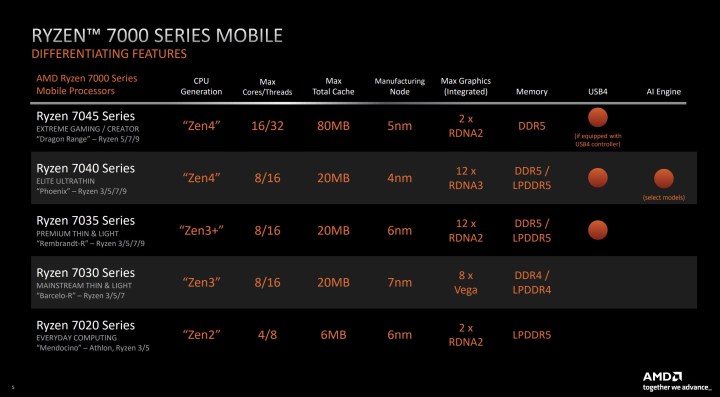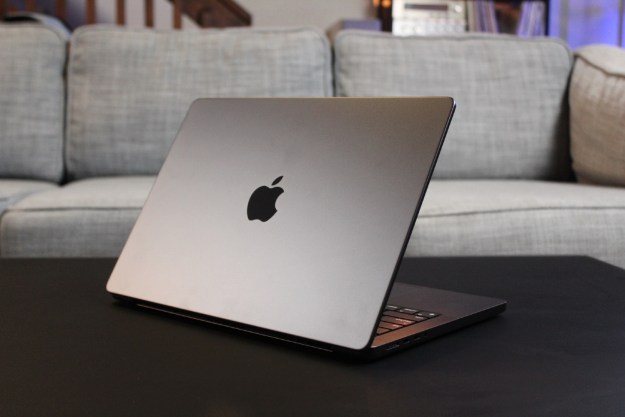AMD’s Ryzen 9 7945HX, the mobile flagship for this generation, was just spotted in some early benchmarks. The test results show that AMD might be really competitive in gaming laptops this year.
The CPU outpaced its last-gen equivalents by miles, and it kept up with Intel’s best processors despite having far fewer cores.
AMD initially announced the mobile versions of Zen 4 during CES 2023. Now, the CPUs are starting to appear in
The processor belongs to AMD’s gamer-oriented lineup called “Dragon Range.” It comes with 16 cores and 32 threads, and it can hit a clock speed of 5.4GHz at 55 watts, but it’s likely to go higher if the full TDP is being used (75 wtts). Compared to the previous-gen Rembrandt CPUs, the core count has been doubled — the top chip in the last generation only had eight cores and 16 threads.
In this benchmark, the CPU was found in the Asus ROG Zephyrus Duo 16, which is one stunning laptop equipped with a dual screen and some of the best hardware in this generation, including an up to Nvidia RTX 4090 mobile GPU. Although we don’t know the GPU that has been used, it was probably one of the top GPUs from Nvidia. The laptop also comes equipped with 32GB of DDR5 RAM.
The highest available score for the Ryzen 9 7945HX put it near the very top of the list, and that includes not just laptop chip, but also desktop CPUs. The processor scored 2,217 points and 19,403 points in the Geekbench 5 single-core and multi-core tests, respectively.
With that score, AMD is the current winner in single-core when it comes to mobile chips, and it’s not far behind Intel’s Core i9-13980HX in multi-core tests. The average scores are a bit lower than the top, though, so when we take those into consideration, Intel wins in both — but not by much.
It’s also interesting how close the Ryzen 9 7945HX is to the desktop Ryzen 9 7900X, and in single-core, it’s almost keeping up with the Ryzen 9 7950X. Considering the massive difference in TDP (170 watts versus 55 watts), the mobile chip is doing some outstanding work in these benchmarks.

Comparing it to the previous generation also shows massive gains. It’s over twice as fast in multi-core operations — the Ryzen 9 6900HX has an average score of 9,909 points. The single-core difference is not quite as big, but still huge, with the Zen 3 chip averaging 1,593 points.
It’s still a little too early to dub the Ryzen 9 7945HX the best AMD processor of the year. Geekbench 5 scores are one thing, but we’ve still got to see the CPU perform in real gaming scenarios.
Editors' Recommendations
- 4 CPUs you should buy instead of the Intel Core i9-13900K
- The only Intel CPU you should buy is over a year old
- Intel just launched the ‘world’s fastest’ CPU
- Intel may have a monster new CPU coming soon
- Intel’s CPUs just got way more confusing



